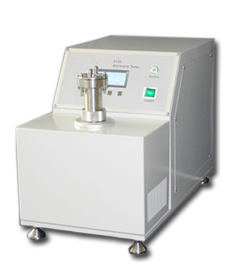
Cotton fineness tester test standards
2025/01/09
Standards
GB1103-2007, ASTM D1448, BS 3181, ISO 2403
Technical Specifications
Measuring range: 2.0 to 7.5 micronaire
Measuring accuracy: 0.03 micronaire (standard lab environment)
Test time: 15 seconds on average
Sample mass: 5 ± 0.1g
Power: AC 100-240V,50/60Hz
PC communication: USB port connection
Dimensions: L520 x W280 x H300mm
Weight: 10kg
Warranty: 24 Months

Applications
Cotton fineness testers are widely used in the cotton textile industry, research institutions, and quality inspection agencies. In the cotton textile industry, these testers are used to measure the fineness of cotton fibers to ensure the stability and consistency of cotton quality. At the same time, they provide important detection means for research institutions and quality inspection agencies to study the physical and chemical properties of cotton fibers and monitor changes in cotton quality.
Testing Standards
The testing standards for cotton fineness testers usually include a series of specific testing steps and operational requirements. These standards may involve sample preparation, instrument calibration, test environment control, and test data recording and analysis. By following these testing standards, the accuracy and reliability of test results can be ensured, providing strong quality assurance for cotton textile enterprises.
In summary, cotton fineness testers play an important role in the cotton textile industry. They adhere to a series of international and domestic testing standards, have different specification parameters, and are widely used in the cotton textile industry, research institutions, and quality inspection agencies. By following specific testing standards, the accuracy and reliability of test results can be ensured, providing strong support for the development of the cotton textile industry.
As a modern technology enterprise integrating R&D, manufacturing, sales, training, and services, Standard International Group (HK) Limited is committed to delivering more testing instruments to the market, providing testing instruments for textiles, leather, combustion, automotive interior and exterior trims, material environmental climate aging, etc., and non-standard customization is also acceptable. Targeted tests can be carried out according to customer requirements before purchase to ensure that the purchased instruments are applicable.
Previous: Introduction of wool fineness tester
N e x t : Performance of universal wear resistance tester



